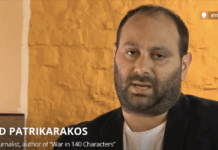By Mark Ellis —

In the picturesque town of Haarlem, sometimes known as Little Amsterdam, Corrie ten Boom and her devout Christian family saved at least 800 Jews from the Holocaust by hiding them in their home and assisting their escape to freedom.
What is less known, perhaps, is that their dining room table was the place where prayers were offered on behalf of the Jewish people and “for the peace of Jerusalem” from 1844 to 1944, until the Nazis arrested the family and sent them to concentration camps.
The beginnings of the prayer “century” for the Jews by Corrie’s grandfather, Willem, even preceded the Zionist movement!
“This was an unusual idea among Christians at that time,” Corrie reflected later. “The Jews were scattered throughout the world, without a country or a national identity. Jerusalem was a city torn by centuries of conflict. The attention of the world was not upon the Middle East, and yet a small group of Dutch believers met in a little Haarlem house to read the Scriptures and pray for the Jews (and) pray for the peace of Jerusalem.”
Corrie saw a connection between their prayerful petitions and the role her family played in World War II: “In a divine way which is beyond our understanding, God answered those prayers. One hundred years after Willem began his prayer meetings, his son, four grandchildren, and a great grandchild were arrested in the same house where the prayer meetings started, because they had saved Jewish people from Adolph Hitler’s plans to kill them.”
My wife and I, with our son, had the privilege of praying at that dining room table recently, after touring the Ten Boom’s house and museum with the new director of the museum, Foppe Wiersma, a dermatologist by training.
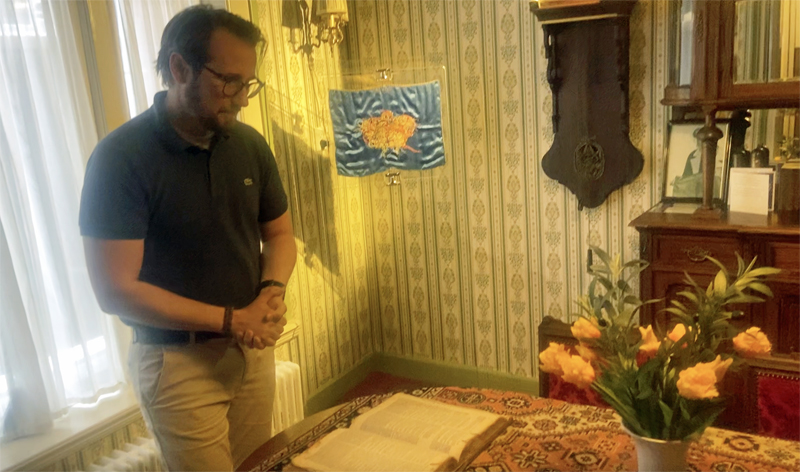
“We have more and more schools visiting here, with Christian and non-Christian students. There are Muslim kids as well,” Wiersma told us. “We share a message about the family and their faith, the hope they had in Jesus,” he said.
“It’s amazing because young Muslim children, hear about Jesus, the Messiah, and they say, ‘I never understood what forgiveness was like.’
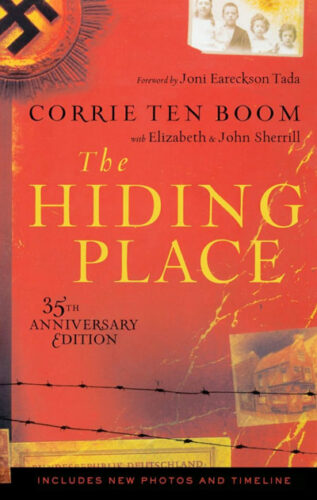 Those who have read Corrie’s book, The Hiding Place, know it contains a message about radical forgiveness, as Corrie found herself face-to-face after the war with a prison camp guard who had stood in the shower room door processing naked women who had been shipped like cattle to Ravensbruck.
Those who have read Corrie’s book, The Hiding Place, know it contains a message about radical forgiveness, as Corrie found herself face-to-face after the war with a prison camp guard who had stood in the shower room door processing naked women who had been shipped like cattle to Ravensbruck.
The conditions at the Ravensbruck Concentration Camp represented “the deepest hell that man can create,” according to Corrie.
As Corrie and her sister, Betsie, fought to stay alive in the camp, Betsie urged her younger sister – if she survived – to tell others what they learned:
“Tell everyone who will listen that Jesus is a reality and that he is stronger than the powers of darkness. Tell them He is our greatest friend, our hiding place. Only prisoners can know how desperate this life is. We can tell from experience that no pit is too deep, because God’s everlasting arms always sustain us. Even in Ravensbruck, God’s love still stands when all else has fallen.”
Museum Director Wiersma sees a parallel between the rise of antisemitism in the 1930s and what is happening today. “Corrie’s brother, Willem, studied theology in Leipzig, Germany. And he wrote his thesis before the war for his PhD. He wrote that antisemitism is rising, and he warned his readers. He said what is being taught at the universities will lead to — or might lead to — the destruction of the Jewish people. So, he had foresight.”
Sadly, the same antisemitic teaching is prevalent at universities today, and may lead to the same outcome.
While massive crowds of people visit Anne Frank’s home in Amsterdam, far fewer visit Corrie Ten Boom’s home in Haarlem, located only 12 miles from Amsterdam. Both homes are relevant today, because history seems to be repeating itself, but only one of the homes contains a message of forgiveness and hope.
Corrie’s father, Casper, the esteemed watchmaker, was 84-years-old at the time of his arrest. The Nazi Gestapo chief took pity on the elderly man and offered to release him if he would renounce any further activities on behalf of the Jews.
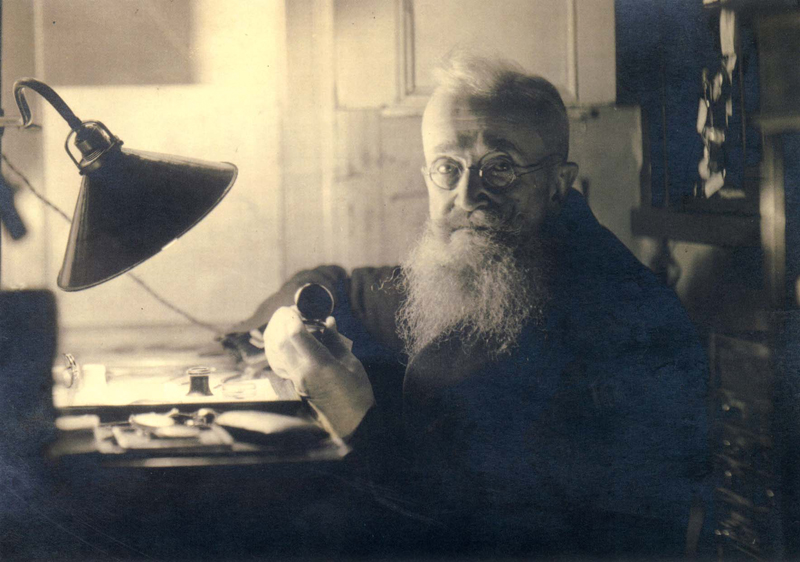
“If I go home today,” Casper replied, “tomorrow I will open my door again to any man in need who knocks.”
That response sealed his fate. He only survived 10 days in Nazi custody. The Nazis buried him in an unmarked grave near Scheveningen prison.
Corrie recalled her last moments with her father at the prison. “I had my arm around my father, and he leaned heavily against me. He was very weak, and we spoke only about heaven.”
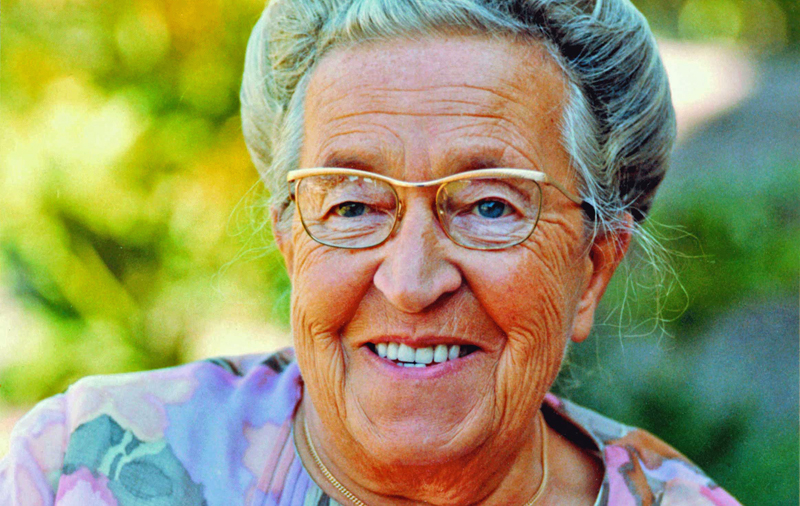
His last words to Corrie were these: “Remember, Corrie, the best is yet to be.”
In addition to forgiving the concentration camp guard, Corrie also faced the challenge of forgiving the Dutch citizen and fellow townsperson who turned her and her family over to the Gestapo. When she was at Vught Concentration Camp she learned the name of the man who betrayed her family, and struggled with bitter feelings and hatred of the man who caused so much death and hardship.
After the war the man was arrested and sentenced to death. Corrie wrote a letter to him in prison, telling him she forgave him. She also sent him a small New Testament that underlined the way of salvation.
Later, he wrote back to Corrie: “That you should forgive me is such a great miracle that I have said, ‘Jesus, when you give such a love in the hearts of your followers, there is hope for me.’ And I read in the Bible that you sent me that Jesus died on the cross for the sins of the whole world. And I have brought my terrible sins to Jesus and I know they are forgiven. Your forgiveness has shown me what it means, that there is forgiveness through Jesus Christ.”
“That man was brought to death (executed) the same week, but he was reconciled with God,” Corrie wrote later. “And God had used me, who hated him, to bring him to the Lord!”
To learn more about the Corrie ten Boom house and museum, go here



